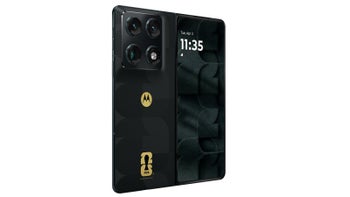Apple has patent tossed in U.S. lawsuit, multi-touch patent called into question

The last year the nexus of legal action in the smartphone industry has been Germany; in the U.S. several complaints were brought to the ITC first, due to the presumed speed of response. While the ITC is generally faster than the U.S. court system, it has generally not favored those seeking to ban devices. As a result, lawsuits filed in U.S. courts are finally starting to ramp up.
Perhaps the most anticipated are the back-to-back patent suits between Apple and Motorola that will be taking place this summer. As we get closer to trial we are seeing more frequent rulings by the presiding judge. Earlier this week Apple lost on a request to compel Motorola to share information on the development of Android, and today we can report some additional rulings on specific patents. These rulings are on “claim construction”, the part of the pre-trial work where both sides argue over almost every significant work, to try and pin down exactly what a patent covers.
After earlier rounds of winnowing, Apple was left with 6 patents and Motorola with 3. After today Apple will have 5 patents remaining, and Judge Posner has specifically called into question some of the claims Apple is making in other key patents. The patent thrown out was for “a 'wrapper' that enables object-oriented applications to access procedural operating system services”. Judge Posner declared it invalid because the patent does not specify the means by which the patent would work – in other words the patent is so vague that it could cover almost anything.
Of the five remaining patents, the judge raised some serious questions about how broadly Apple’s key multi-touch patent was worded, indicating that as presented it the patent would refer to any touchscreen computer. That would be bad for Apple, because touchscreen computers most certainly existed before the iPhone, so it would be easy to invalidate the patent based on prior art.
Posner has requested that both sides file briefs on the touchscreen patent for next week, so we may find out fairly soon whether Apple’s “touchscreen heuristics” patent will pass enough muster to reach the trial phase. This is one of the key patents that Steve Jobs wanted to “kill Android” with, so a failure against Motorola in this case may lead to a significant slowdown in the smartphone patent wars.
Motorola also had one of its three patent claims called into question. Another patent is FRAND-based, so while it looks likely that they will win it, Apple will probably be able to escape an injunction while both sides work out a licensing deal.
Of course in both cases we hope that justice is served, but since we aren't legal experts, we hope that "the just" thing happens to coincide with the thing that could slow down the rate of lawsuits in our industry. We may find out sooner rather than later.
source: Foss Patents
Posner has requested that both sides file briefs on the touchscreen patent for next week, so we may find out fairly soon whether Apple’s “touchscreen heuristics” patent will pass enough muster to reach the trial phase. This is one of the key patents that Steve Jobs wanted to “kill Android” with, so a failure against Motorola in this case may lead to a significant slowdown in the smartphone patent wars.
Of course in both cases we hope that justice is served, but since we aren't legal experts, we hope that "the just" thing happens to coincide with the thing that could slow down the rate of lawsuits in our industry. We may find out sooner rather than later.
source: Foss Patents
Follow us on Google News














Things that are NOT allowed:
To help keep our community safe and free from spam, we apply temporary limits to newly created accounts: